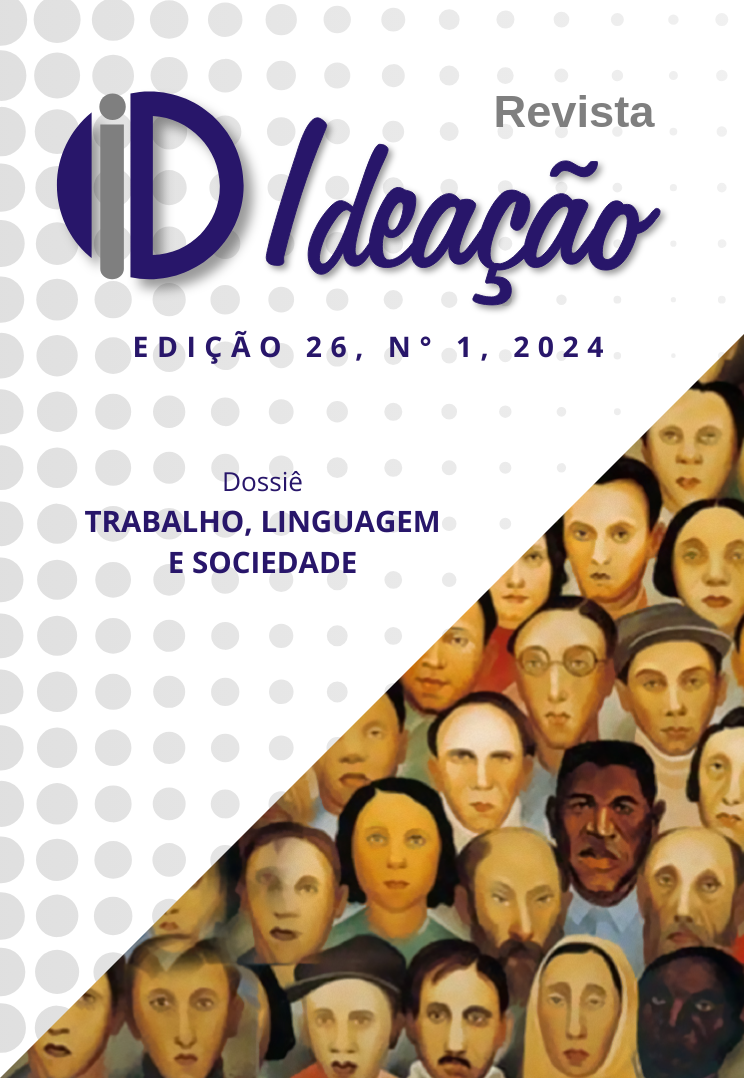The variable behavior of (NDO) in seabrense speech
a sociolinguistic approach
DOI:
https://doi.org/10.48075/ri.v26i1.31543Keywords:
Sociolinguistics, Variation, Verbs, Gerund, Seabrense SpokenAbstract
The aim of this study was to analyze the variable behavior of the stop consonant /d/ in the morpheme (ndo) that characterizes verbs in the gerund in Portuguese spoken in Seabra, a Brazilian municipality in the state of Bahia, in the light of the Theory of Variation and Linguistic Change (WEINREICH ; LABOV; HERZOG, 2006 [1968]; LABOV, 2008 [1972]). The analyzed sample, belonging to the database of the Projeto Se abra à Chapada: collecting, exploring and mapping sociolinguistic data, consisted of 18 sociolinguistic interviews, stratified according to age group (one: 18-33 years old, two: 35-48 years old and three: 50+ years), gender (male and female) and education (elementary, secondary and university). After collection, the data were submitted to fixed and mixed effects logistic regression models, with the aid of the programming language called R (R CORE TEAM, 2020), whose results obtained showed a correlation between the social predictor variables (schooling and age group ) and the response variable.
Downloads
Published
How to Cite
Issue
Section
License
Copyright (c) 2024 Direitos partilhados conforme licença CC BY-NC-SA 4.0

This work is licensed under a Creative Commons Attribution-NonCommercial-ShareAlike 4.0 International License.
Authors who publish in this journal agree with the following terms:
1. Authors maintain copyright and grant the journal the right of first publication, with the work simultaneously licensed under the Creative Commons Attribution License that allows the sharing of the work with recognition of authorship and initial publication in this journal.
2. Authors are authorized to assume additional contracts separately, for non-exclusive distribution of the version of the work published in this journal (e.g., to publish in an institutional repository or as a book chapter), with acknowledgment of authorship and initial publication in this journal.
3. Authors are allowed and encouraged to publish and distribute their work online (e.g., in institutional repositories or as a personal page) at any point before or during the editorial process, as this may generate productive changes, as well as increase the impact and citation of the published work (See The Effect of Free Access).
Creative Commons License
This work is licensed under a Creative Commons Attribution-Noncommercial-ShareAlike 4.0 International License, which permits sharing, copying, distributing, displaying, reproducing, the whole or parts provided it has no commercial purpose and the authors and source are cited.


